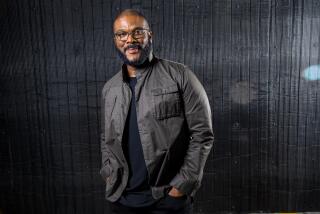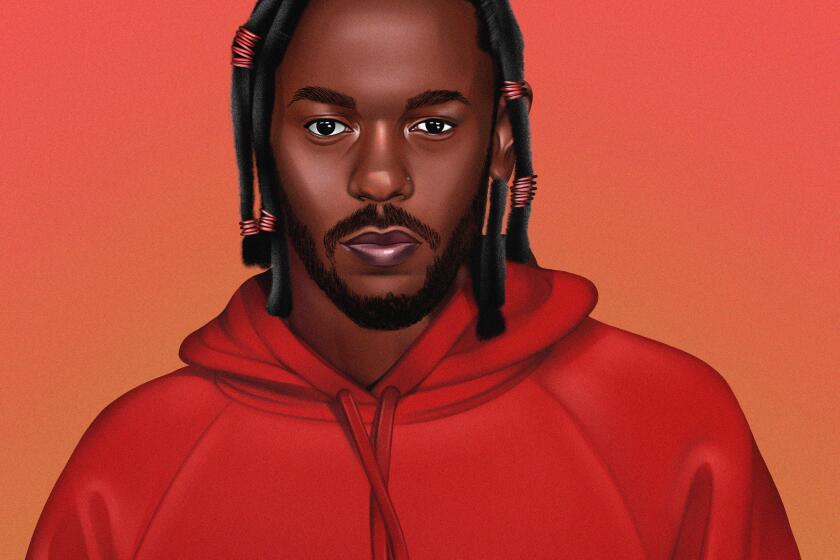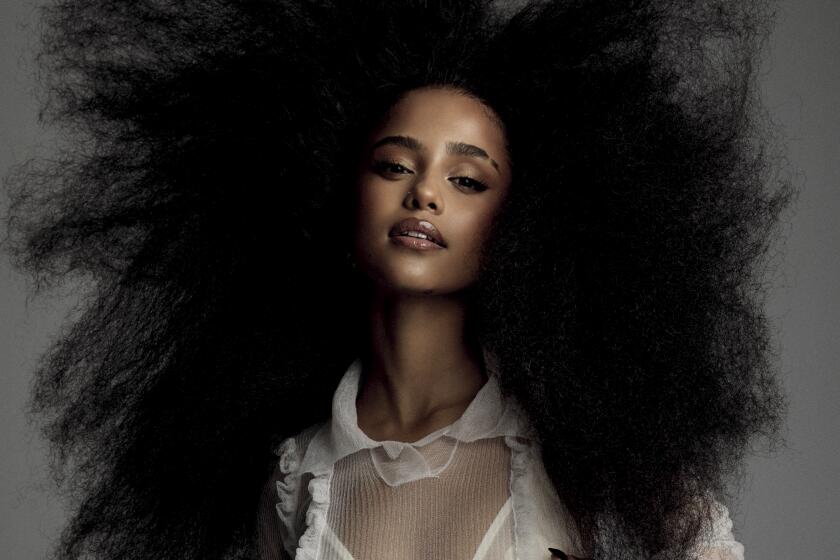Linda Perry on her Grammy nomination: ‘Yay, me ... but it’s bigger than just Linda Perry’
How different was the world 20 years ago?
Bill Clinton was still president, “The Big Lebowski” and “Saving Private Ryan” were new in movie theaters and the big fear looming for the near future was a Y2K technological meltdown.
For the record:
1:30 p.m. Dec. 21, 2018An earlier edition of this post identified Linda Perry’s record label and publishing company as We Are Here. The company is We Are Hear.
That world of 1998 also was the last time a solo woman received a Grammy Award nomination in the non-classical producer of the year field. Former Fugees member Lauryn Hill earned that distinction for production work on her solo debut, “The Miseducation of Lauryn Hill,” for which she ended up taking home five Grammys, including album of the year, making her the evening’s big winner.
Among those five wins was not, however, the award for producer of the year.
It’s a reminder of how overwhelmingly male-centric the world of record production has been over time, a situation highlighted by this year’s nomination for veteran producer, songwriter and singer Linda Perry, nominated in that category earlier this month alongside Boi-1da, Larry Klein, Kanye West and Pharrell Williams.
Perry, who also has produced recordings over the years for Gwen Stefani, Pink, James Blunt and Cheap Trick, among many others, was still audibly stoked earlier this week after arriving in New York for more work.
“It’s really awesome. But what’s really great about it is the story behind it, because it’s all based on We Are Hear artists,” she said, referring to her record label and publishing company, We Are Hear, that released the recordings by two L.A.-based acts — rock band Dorothy and teen singer-songwriter Willa Amai — and the soundtrack to the film “Served Like a Girl” that earned Perry her nomination.
“Yay, me,” she said with a laugh, “but there’s something bigger and cooler behind me. These are all women, they’re all We Are Hear artists…. That’s what’s sweet about it. It’s bigger than just Linda Perry getting a nomination. It’s like this nomination is a win for many people.”
For Dorothy front woman Dorothy Martin, whose album “28 Days in the Valley” was produced by Perry, her job in the studio extended far beyond the basics of capturing the best performance of each of the group’s songs.
“Not only did Linda Perry bring me the biggest musical challenge and blessing of my life by putting me in the studio with country legend Dolly Parton and producing ‘28 Days in the Valley,’ but she was a key component of my addiction recovery,” Martin said. “She loved me and gave me the reality check I needed that, quite frankly, probably saved my life. I’m forever grateful to her for giving me a safe place to grow as an artist and a woman in the music industry.”
Given the track record in the category, and the world of record production in general, it is noteworthy any time a woman is recognized.
During a year in which the Recording Academy dug in to address the #GrammySoMale criticism that blew up after last year’s award ceremony by creating a task force to study the issue and recommend solutions, “the worst statistics of everything we’ve seen thus far has to do with the fact that just 2% to 3% of producers and engineers in our industry are women,” Academy President and CEO Neil Portnow told The Times last week. “In those two areas, the industry is woefully and shamefully out of line,” he said. “There’s so much more to be done.”
That said, he pointed to Perry’s nomination as a good first step.
“In the bigger picture, the phrase is ‘You need to see it to be it.’ From an aspirational perspective, to see a woman in the producer of the year category, in an area we know is heinously deficient, it really does help to start to create a role model and an aspirational potential for other women in the industry and for upcoming women who think that’s something they might want to do.”
Perry, who has recently joined the academy’s board of governors, said she’s encouraged by what she’s seen in efforts to take on a systemic issue.
“I don’t think people intend to do what they do. I think we get locked into a routine, a normal. That’s what it is, and it’s hard to break out of that. But I believe the energy of the universe has shifted to women this year.
“This is obviously one of the things that’s a problem,” she said. “There are many issues: people are not getting equal pay, there are a lot of problems we need to address, What we’re doing now, what the academy is doing now, is proactive.”
All of which isn’t to say Perry thinks for a moment her nomination is the result of tokenism.
“I feel like I earned this nomination, and on top of that, yes, I can represent for a long dry spell of women not being acknowledged as producers and engineers,” she said. “I’m hoping what may be even cooler is that there are kids who are 13 or 14 and looking at this hip person — I think I’m still kinda hip — and a 13-year old can look at Linda Perry and say, ‘Oh, that’s cool. I didn’t know that position existed.’ That could be cool and powerful.”
Follow @RandyLewis2 on Twitter.com
For Classic Rock coverage, join us on Facebook
More to Read
The biggest entertainment stories
Get our big stories about Hollywood, film, television, music, arts, culture and more right in your inbox as soon as they publish.
You may occasionally receive promotional content from the Los Angeles Times.










